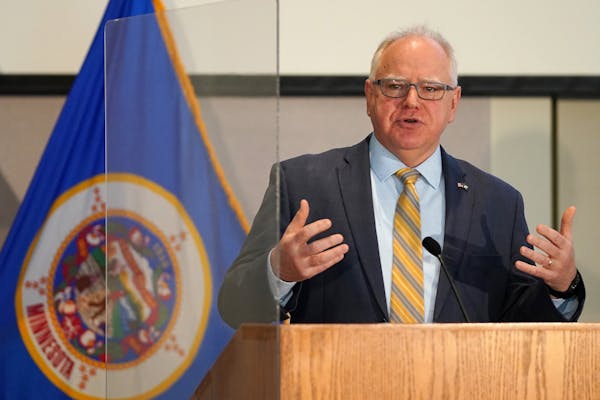How authorities allege the Feeding Our Future fraud unfolded
Here's how federal authorities allege it happened, according to criminal charges:
1. Greasing the wheels: Feeding Our Future, led by founder and executive director Aimee Bock, is accused of accepting bribes and kickbacks from entities in exchange for sponsoring applications for the federal child nutrition program. One of the biggest fraud recipients, for instance, allegedly paid more than $350,000 to Bock and one of her employees in exchange for the nonprofit's cooperation. Smaller players paid as little as $14,000. Many bribes were camouflaged as consulting fees.
2. Working the scam: Conspirators set up feeding sites where they claimed to be serving as many as 5,000 meals per day to needy children, even though some sites served few or no meals. In some cases, conspirators also set up companies that sold food to meal sites they controlled or were affiliated with.
3. Faking the numbers: To obtain payment, site operators created fake meal count sheets and filled out attendance rosters with the names and ages of fictitious children. In some cases, sites claimed identical number of meals each day — a red flag to monitors. Vendors submitted fake invoices documenting phony or inflated food and beverage purchases.
4. Getting rich: Charges say Bock and Feeding Our Future submitted fraudulent reimbursement claims to the Minnesota Department of Education, which oversees the federal program in Minnesota, to obtain money for the meal providers and food vendors. The payments should have barely covered the providers' costs, but the conspirators were able to pocket millions of dollars because their true expenses were so low.
5. Spending the loot: Conspirators used the money they fraudulently obtained from the government to purchase resort homes, investment property, luxury cars, jewelry and vacations in the U.S. and abroad. Federal prosecutors have so far seized $50 million in assets.
Who is involved?
1. Empire Cuisine and Market LLC (8 indicted): This for-profit restaurant in Shakopee collected $28 million between May 2020 and January 2022 by operating as a vendor and a meal provider. Primary affiliate ThinkTechAct operated more than two dozen meal sites and was paid more than $21 million after claiming to serve more than 25,000 children daily.
2. Safari Restaurant (14 indicted): Started serving meals at its Minneapolis restaurant in July 2020 and then became a vendor to affiliated sites. In just 20 months, claimed to serve 3.9 million meals at its Minneapolis restaurant and another 2.2 million meals as a vendor, including sites in Willmar and Mankato. Received more than $16 million in federal money.
3. S & S Catering (8 indicted): Acted as a meal provider and vendor. Received $6.8 million after claiming to serve 1.2 million meals at its Minneapolis location. Also collected $12 million as a vendor. Four affiliates, including Academy for Youth Excellence, received $12.8 million for sites they operated in Minneapolis and St. Paul.
4. Haji's Kitchen (5 indicted): Vendor operated in a small warehouse in Brooklyn Park. Received more than $16 million in federal money.
5. Brava Restaurant & Cafe (6 indicted): Operated out of a strip mall in Rochester and received $5.6 million after claiming to serve up to 2,999 meals per day.
6. JigJiga Business Center (3 indicted): Between February and October 2021, defendants claimed to serve more than 800,000 meals to children out of this Minneapolis business center, receiving more than $1.6 million in federal money.
Feeding Our Future: Previous coverage




